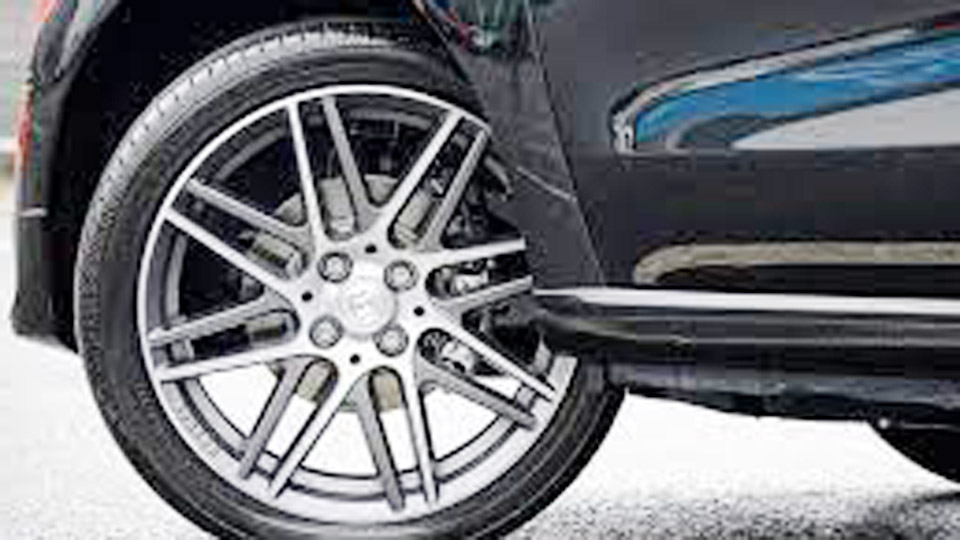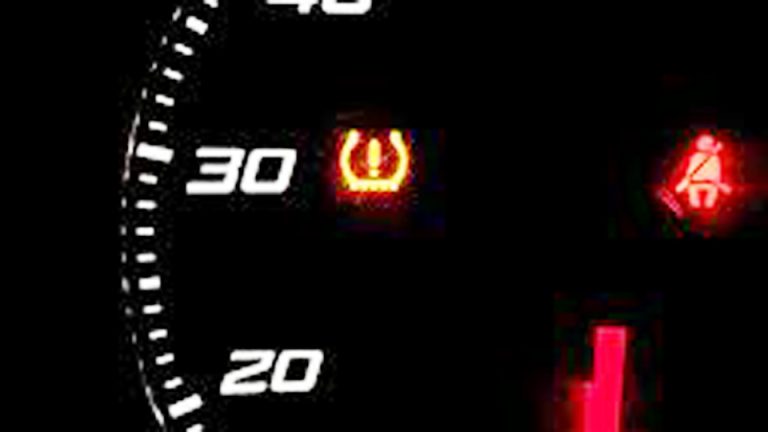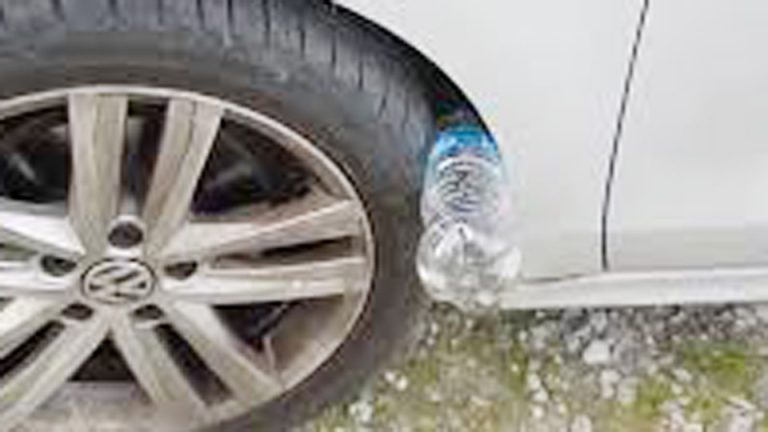You’re cruising down the road, enjoying a sunny day, when you turn the steering wheel and—ugh—a loud squeak or squeal interrupts the vibe. It’s annoying, right? I’ve been there, and as someone who’s spent years tinkering with cars, from my old Ford Mustang to a zippy Honda Civic, I know that squeaking sound can make you wonder, “Why does my car squeak when turning the wheel?” Don’t worry—I’m here to help you figure it out.
I’ll break down the most common reasons for that pesky noise, how to diagnose it, and what you can do to fix it. Whether you’re new to cars or a seasoned gearhead, I’ve got practical tips and real-life stories to get your car quiet again.

Photo by tiredeets
Understanding Your Car’s Steering System
Before we hunt down that squeak, let’s talk about how your steering system works. Most cars use a power steering system—either hydraulic or electric—to make turning the wheel easier. Hydraulic systems use fluid and a pump, while electric ones rely on a motor. When you hear a squeak while turning, it’s usually a sign that something in this system (or nearby) is unhappy.
I’ve learned this from countless hours under the hood, like when my Jeep Wrangler started squeaking and led me to a worn-out belt.
The steering system includes parts like the power steering pump, belt, fluid, steering rack, and tie rods, all working together to make your turns smooth. When one of these parts starts acting up, you get that telltale squeak. Let’s explore the most common culprits.
Common Causes of a Squeaking Steering Wheel
That squeak when you turn the wheel can come from several places. Here’s what I’ve seen in my years of working on cars:
Low Power Steering Fluid
If your car has a hydraulic power steering system, low fluid is a top cause of squeaking. The fluid lubricates the system and helps the pump work smoothly. When it’s low, the pump can start whining or squeaking, especially during turns. I ran into this with my neighbor’s Toyota Camry—the steering squeaked like crazy until we topped off the fluid.
To check this, pop the hood and find the power steering fluid reservoir. It’s usually a small plastic container with a “min/max” line. If it’s low, add the right fluid for your car.
Worn or Loose Power Steering Belt
The power steering pump is driven by a belt (often the serpentine belt). If it’s worn, loose, or misaligned, it can squeal when you turn the wheel, especially under load. My old Dodge Ram had this issue—the belt was so worn it squeaked every time I made a sharp turn.
Check the belt under the hood for cracks, fraying, or looseness. A quick tightening or replacement can often silence the noise.
Failing Power Steering Pump
If the power steering pump is wearing out, it can make a high-pitched squeak or whine when you turn. This happened with my Chevy pickup after years of heavy use. The pump’s bearings were shot, and it squeaked like a rusty gate.
Listen for a consistent squeak or whine that gets louder during turns. If the pump’s the issue, you’ll likely need to replace it.
Worn Steering Rack or Tie Rods
The steering rack and tie rods connect your steering wheel to the wheels. If they’re worn or lack lubrication, they can squeak during turns. I saw this on my Jeep after some off-roading—the tie rod ends were dry and squeaking like crazy.
If the squeak comes with a clunking feeling or uneven steering, the rack or tie rods might need attention.
Dry or Worn Suspension Components
Sometimes, the squeak isn’t from the steering system itself but from nearby suspension parts, like ball joints or bushings. These can dry out or wear down, squeaking when you turn. My Ford F-150 had a squeaky ball joint that drove me nuts until I greased it up.
Check for squeaks that happen only when turning at low speeds or over bumps, as this often points to suspension issues.
Tire Issues
Believe it or not, your tires can cause squeaking too. If they’re underinflated, misaligned, or worn unevenly, they might squeal during turns. I had this happen with my Honda Accord when the front tires were low on air, making a squeaky noise on sharp corners.
Check your tire pressure and look for uneven wear. An alignment might be needed if the tires are off.
Diagnosing the Squeak
Now that you know the possible causes, let’s figure out what’s making your car squeak. Here’s how I approach it:
Step 1: Listen Carefully
Pay attention to when and how the squeak happens. Is it loudest during sharp turns? Only at low speeds? Does it sound like a high-pitched whine or a creaky groan? I always tell my friends to “let the car talk to you.” For example, a whine during turns often means a power steering issue, while a creak might point to suspension parts.
Step 2: Check Power Steering Fluid
Pop the hood and find the power steering fluid reservoir. Check the level against the “min/max” marks. If it’s low, top it off with the right fluid (check your owner’s manual). I fixed a squeak on my neighbor’s Nissan this way in about 10 minutes.
Step 3: Inspect the Belt
Look at the serpentine belt under the hood. Is it cracked, frayed, or loose? You can often tell by pressing on it—if it feels slack or looks worn, it’s likely the culprit. I tightened the belt on my Dodge and the squeak vanished instantly.
Step 4: Test the Tires
Grab a tire pressure gauge and check all four tires. Compare the readings to the recommended PSI (usually on the driver’s door jamb). If they’re low, inflate them. Also, look for uneven tread wear, which could mean an alignment issue. This fixed a squeak on my Toyota once.
Step 5: Check Suspension Components
If the steering system checks out, bounce the front of the car to listen for squeaks from the suspension. I did this with my Jeep and found a dry ball joint that needed grease. If you’re not sure what to look for, a mechanic can inspect it.
Step 6: Test Drive and Listen
Take the car for a short drive, making slow, deliberate turns. Note when the squeak happens—left turns, right turns, or both? This can help pinpoint whether it’s a steering or suspension issue. I used this trick規制
Step 7: Get Professional Help
If you can’t find the source, take it to a mechanic. They have tools to diagnose issues like a failing power steering pump or worn steering rack. I had to do this with my BMW once—the squeak was coming from a part I couldn’t identify myself.
Common Car Models and Their Squeaking Issues
Different cars have different quirks. Here’s a table of popular models and common squeaking issues based on my experience:
| Car Make/Model | Common Squeaking Issue | Fix |
|---|---|---|
| Honda Civic (2000-2010) | Worn power steering belt | Tighten or replace belt. |
| Toyota Camry (2005-2015) | Low power steering fluid | Top off fluid. |
| Ford F-150 (2010-2020) | Dry ball joints | Grease or replace joints. |
| Jeep Wrangler (2007-2018) | Worn tie rod ends | Lubricate or replace. |
| BMW 3 Series (2015+) | Electric steering motor noise | Professional repair needed. |
This isn’t exhaustive, but it gives you a starting point. Your car’s manual can provide model-specific details.
Tools You’ll Need to Fix the Squeak
You don’t need a full garage, but here are some tools I keep handy for these jobs:
- Tire Pressure Gauge: To check tire pressure.
- Power Steering Fluid: The right type for your car.
- Wrench or Socket Set: For tightening belts or bolts.
- Grease Gun: For lubricating suspension parts.
- Flashlight: To spot hard-to-see issues under the car.
I’ve used these tools to fix squeaks on everything from my Mustang to my friend’s Subaru. They’re lifesavers.
Cost of Fixing a Squeaking Steering Wheel
The cost depends on the cause. Here’s a rough breakdown based on my experience:
| Issue | Estimated Cost | Notes |
|---|---|---|
| Power Steering Fluid Top-Off | $10-$30 | DIY is cheap; shops may charge more. |
| Power Steering Belt Replacement | $100-$200 | Includes parts and labor. |
| Power Steering Pump Replacement | $300-$600 | Labor-intensive for some cars. |
| Suspension Component Repair | $150-$500 | Varies by part (e.g., ball joints, tie rods). |
| Alignment | $80-$150 | Fixes tire-related squeaks. |
I saved money by topping off my Jeep’s fluid myself, but some repairs, like pumps, are best left to pros.
Why Modern Cars Might Squeak More
Modern cars often use electric power steering, which is quieter but can still squeak if the motor or sensors fail. Hydraulic systems, found in older cars like my Mustang, are more prone to belt and fluid issues. Either way, regular maintenance is key to keeping things quiet.
Preventing Squeaking Issues
Nobody wants a noisy steering wheel, so here’s how I prevent squeaks:
- Check Fluid Levels: Look at power steering fluid every few months.
- Maintain Tires: Keep them at the right PSI and get alignments regularly.
- Lubricate Suspension: Grease ball joints and tie rods during maintenance.
- Inspect Belts: Check for wear during oil changes.
These habits have kept my cars squeak-fre**e for years.
What Not to Do When Dealing with a Squeak
Here’s what I’ve learned to avoid:
- Don’t Ignore It: A small squeak can turn into a big repair if left unchecked.
- Don’t Overfill Fluid: Too much power steering fluid can cause leaks.
- Don’t Force Parts: Yanking on belts or joints can cause damage.
I once overfilled the fluid in my Chevy, and it made a mess. Take it slow and follow instructions.
Practical Tips for a Quiet Steering Wheel
Here are some tips to keep your steering system silent:
- Regular Checks: Look at fluid, belts, and tires every few months.
- Drive Smoothly: Avoid sharp turns that stress the system.
- Use Quality Parts: Cheap fluid or belts can cause problems.
- Get Professional Help Early: Don’t wait for a small squeak to become a big one.
These tricks have worked wonders for my cars, and they’ll help you too.
Wrapping It Up
A squeaking steering wheel is more than just annoying—it’s your car telling you something’s wrong. Whether it’s low fluid, a worn belt, or a suspension issue, you now know how to track it down and fix it. I’ve been through this with my own cars, and with a little patience and the right approach, you can get back to quiet, smooth driving.
Keep up with maintenance, listen to your car, and don’t hesitate to call a pro if you’re stumped. Here’s to a squeak-free ride and enjoying the road in peace!
Frequently Asked Questions
Why does my car only squeak when turning at low speeds?
Low-speed turns put more strain on the power steering system, making issues like low fluid or a loose belt more noticeable. Check the fluid level and belt condition first.
Can bad tires cause a squeaking noise when turning?
Yes, underinflated or misaligned tires can squeal during turns. Check your tire pressure and get an alignment if needed.
How often should I check my power steering fluid?
Every 3-6 months is a good rule. If you hear squeaking, check it sooner to catch problems early.
Is it safe to drive with a squeaking steering wheel?
It depends on the cause. A minor squeak from low fluid is fixable, but a failing pump or suspension part could lead to steering failure. Get it checked quickly.
Can I fix a squeaking steering wheel myself?
Simple fixes like topping off fluid or tightening a belt are DIY-friendly. More complex issues, like pumps or suspension parts, might need a mechanic.




